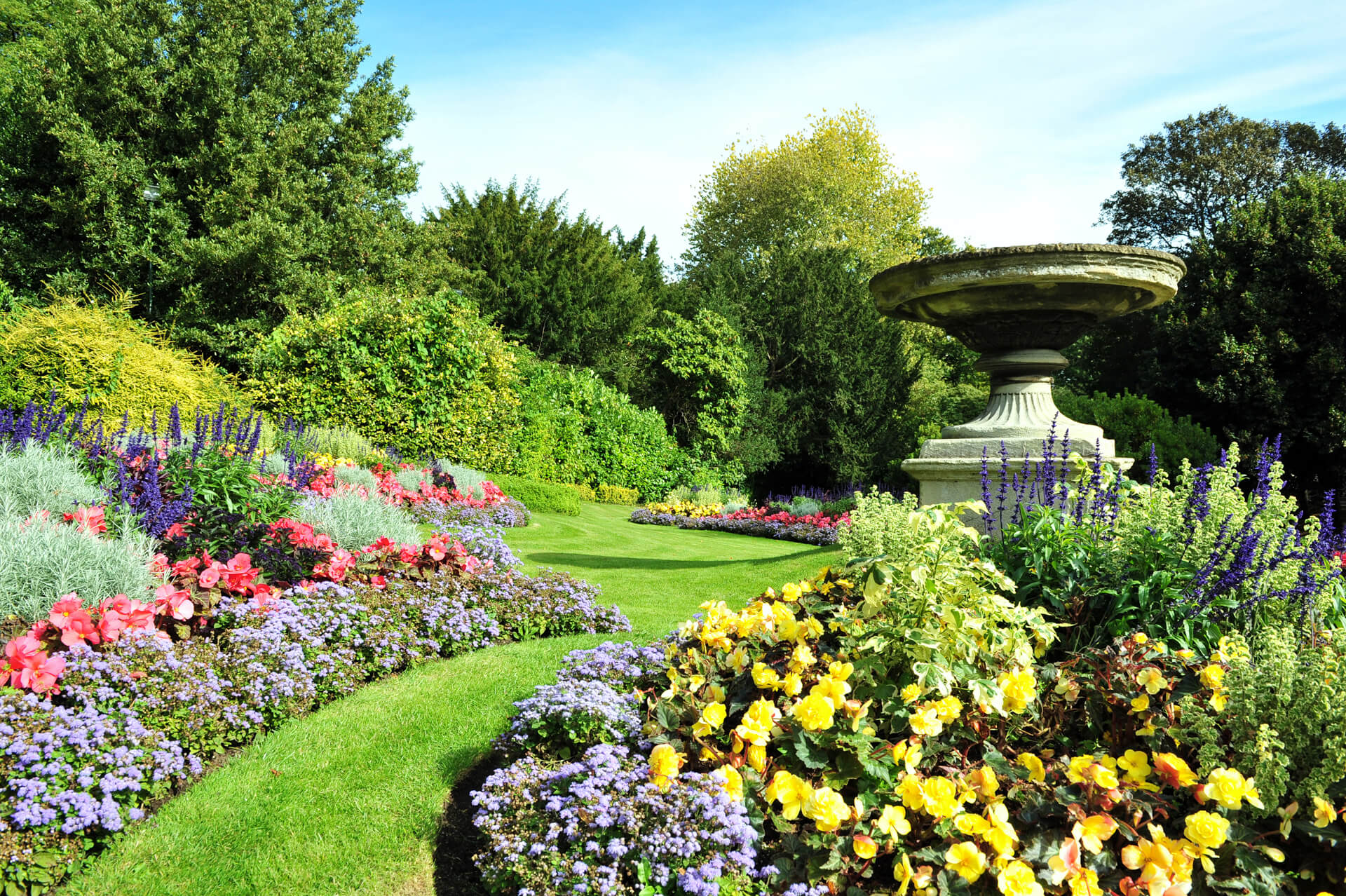
Summer’s here, and the beautiful sunny days just beg for some good gardening time. Luckily, this time of the year, with its soaring temperatures and decreasing rain, is also crucial for performing some basic lawn care maintenance that will keep your yard green and growing all season long. The following tips will help you maintain a lush lawn that is the envy of the neighborhood, and allow you to spend some much needed “me” time outdoors!
Water, Water, Water
As we creep into July and August, it’s normal to see your yard’s growth slow and color fade, as the 90° days, coupled with the region’s recent lack of precipitation, can wear hard on your grass and plants. The hustle and bustle of summer often means we are away from home more often, but making sure that you are regularly watering your yard is important in keeping it from going brown and dormant. Once a week, add at least an inch of water to your lawn (use a rain gauge or get creative with an easily measurable DIY container). It’s best to water in the early morning, when there will be less evaporation.
Mow Regularly
It is also important to keep your lawn mowed consistently, and to remove clippings afterwards to promote healthy growing. Keep your mower blade sharp so that it cuts cleanly through grass, and doesn’t just tear it, in order to reduce heat-induced stress.
Don’t Mow As Low
Raising your mower’s blade in the summer, and keeping your grass a little longer than you would in the spring, helps your grass become more drought-resistant and grow longer roots, as well as prevents weed seeds from germinating. Cool season grasses should be mowed to 3”- 4” during the summer and warm season grasses should be mowed to 2”- 3”.
Resist the Urge to Over Fertilize
As your lawn starts to look a little scraggly come mid-summer, it might be tempting to just slap some more fertilizer down and call it good. The problem is that fertilizer, with the exception of organic options, can actually burn your lawn, as well as lead to new growth that will be extra vulnerable to the summer heat. Use organic fertilizer sparingly, and if your lawn has gone dormant, meaning it has turned brown and is no longer growing, do not apply fertilizer at all until the fall.
Remove Weeds Manually
Summer calls for a different mode of controlling weeds, as many herbicides are made to be applied in temperatures below 85°F and the use of chemicals can cause additional damage to stressed lawns. Stay ahead of weed growth by grabbing a good pair of gardening gloves and get to pulling - you’ll be getting in a good workout as well!
